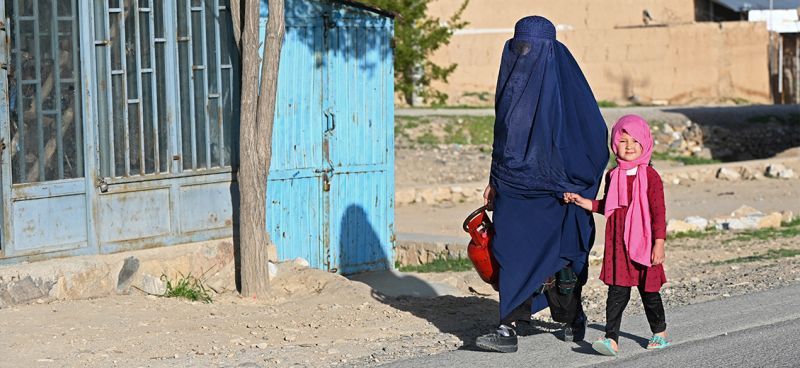
Restrictions on women and girls imposed since the Taliban authorities took power are projected to cost Afghanistan almost six percent of its GDP over two years, the UN development agency country director said on Thursday.
Taliban authorities have squeezed women out of education, jobs and public life since 2021, creating what the United Nations has called «gender apartheid».
The social and economic exclusion of women and girls is expected to amount to cumulative losses of $920 million -- 5.8 percent of GDP -- between 2024 and 2026, according to a new UN Development Programme (UNDP) report.
«It's a major hit to the economy,» Stephen Rodriques, UNDP representative in Afghanistan, told AFP.
Only seven percent of women in Afghan households are employed, whereas women's participation in the workforce was around 15 percent before the Taliban takeover, Rodriques said.
Removing restrictions on women's access to jobs and on their freedom to travel without a male guardian «could see a dramatic increase in women's employment», he said, as well as likely encouraging donors to «release more funding» to the country.
The issue is part of an overall "very concerning" trajectory for Afghanistan, he added.
The report warned that Afghanistan, facing the world's second-worst humanitarian crisis after war-torn Sudan, is "sinking deeper into socioeconomic crisis".
Modest economic growth in 2023-2024 hinged on humanitarian and development assistance flowing into the economy such as through cash-for-work projects that gave households spending power.
But aid to Afghanistan has decreased steadily in recent years, with restrictions on women's rights a major sticking point for donors.
And funding has plummeted further with US President Donald Trump's decision to slash foreign assistance.
"More people are at a subsistence level in 2024 than they were in 2023 and that's before these new cuts," Rodriques said.
With AFP



Comments